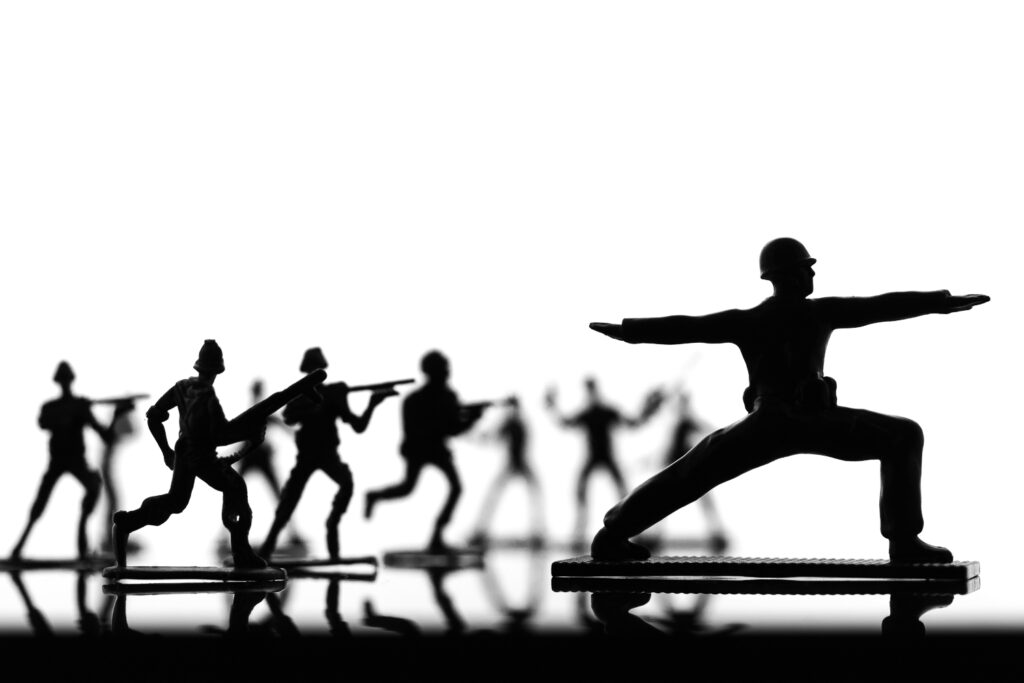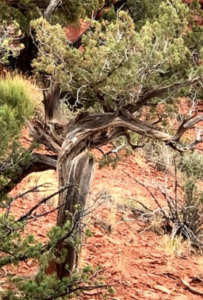
In the spiritual world of yoga we tend to use greetings and salutations such as Namasté, Satnam, “love and light,” “the light within me honors the light in you,” etc. While these are most often fine and good, lately they have seemed a bit superficial to me.
Do I really see love and light in every human?
Do I really wish every human well and want for every human the very best?
With family and friends and people I know, I often do want to see them succeed, want to see their light shine and want the very best for them. It is a wholehearted opportunity to honor the very human in another.
Recently the movement of Black Lives Matter has ignited a depth to my discernment process. Black lives matter signs and petitions have popped up and protests have slung verbiage like all lives matter back as rhetoric. This display of humanity and nonhumanity has left me thinking.
Do black lives matter?
Do all lives matter?
In my quest for spiritual understanding and peace, I am questioning my role in these very precious movements.
Years ago, I was a first-year teacher in a school that served low-socioeconomic families. I absolutely loved that school and the experiences I had teaching my students. They were always challenging me to know more, do better, and learn better ways to teach them. And I did. I followed their lead to find ways to teach them and reach them, while improving my instructional approaches. As I look back I had some very revolutionary moments of discovery and some heartfelt failures and epic bombs as I taught them.
I had always thought my most valuable asset was my integrity. I used this asset as I stood up for my students and advocated what was best for them. I admired this trait in me. Even early on I had a keen sense of knowing what each of my students needed. I prided myself on this wondrous trait.
So, in my first year of teaching, when the principal called me into her office to let me know what I needed to do with a student of mine, something within me was telling me, “This is not a good move. It may be what the mom wants. It is not what is best for the student.”
I took a slow breath and looked at my principal and clearly stated the truth, as her teacher, “I don’t believe this will help her in any way. She needs to be…”
She stopped me so abruptly and sternly spoke in her deep intense voice, “You will do as I say or I will burn your ass.” My insides fell to the ground. My mouth grew dry. I stared at her in utter disbelief. What happened to the sweet, supportive leader I had been laughing with a few days ago? What changed in this instant to cause her to become someone unrecognizable?
In that moment, I thought she was targeting me; in a way, she was. She continued to protest her power over me with actions of outward public humiliation, written warnings of my wrongdoings, etc. I was a beginning teacher and mistakes were supposed to be part of the journey. This person isolated each one of my errors and held them out for public display each time they occurred. I was heartbroken, scared and terrified.
Beliefs are made from experiences.
I learned to not trust Black people in authority positions. I learned to be scared of Black Americans.
This is my racism that comes to the surface every once in a while when I find myself in similar experiences. It created a belief system that even to this day can creep forward in small moments. I have done incredible work around releasing the feelings and emotions surrounding such an experience.
Beliefs get lodged into our analytical brain because they are constantly simmering in our emotional brain or subconscious. Our human story can instantly come alive when a person, an activity or an event of parallel emotions signals those very same memories within the body. The rhetoric begins to play out with conversation, dialogue and expression of discontent.
“Remember when…” leads us to open up that past experience that began it all. Once opened up the body doesn’t generate a subtitle that reads, Oh this was many years ago and it is over so do not feel it, or think about it, or talk about it. Instead, the body cannot differentiate past or present and automatically responds as if it is happening in the present moment, thus allowing the whole cycle of emotional warfare to begin again.
This is the power of the subconscious. Most of our actions are derived from those underlying beliefs that came from early experiences.
Let me unpack the above scenario for you a bit more:
- I was white.
- My principal was Black.
- The student was white.
- Her mother was white and the dean of a local predominate university.
- Our school had mostly Black students from very low socio-economic environments.
- The superintendent was Black.
- School board members were mostly white.
I bet even as you are reading these bits of information and layers to my story you are already creating depth to my story. Don’t!
All along I thought she was outwardly projecting her dislike for me and maybe she thought I was weak or a terrible teacher. The first year of teaching is stressful. I cried a lot.
It was her first year as well. After thirty years, and having spent the last few weeks reading and educating myself on racism and white privilege, listening to influential women of color, and going inward on my own experiences, I’ve uncovered some new truths about that experience.
This principal did not see what I saw.
I saw me, a white teacher, with a white student who had a white mom and I was advocating for her needs as a white person. This was my truth and my reality.
The Black principal saw a student with a white parent, telling her what her white daughter needed. The principal said those words to me because they were her words for herself. She felt if she did not do as she was told, her ass would get burned. This was her truth and her reality.
Neither of us were wrong.
Robin Diangelo writes, in White Fragility: Why It’s So Hard for White People to Talk About Racism, that we have to get comfortable with our discomfort. She says, “It is what we do with our discomfort that matters. The discomfort of not knowing is where the truth lies.”
Honoring our stories and our truths and our perceptions and our feelings and our emotions, is the only way healing can begin.
My belief system was based upon my truths as a white person. The interesting thing is that for many years I was reframing that belief with positivity using white people. While I thought it helped, I now know it really didn’t. It only perpetuated white privilege.
There would have been no way I would have known what to do three decades back. I was young and naïve to the fundamental systemic challenges that Black people live with every day.
Maya Angelo says, “Once you know better, you do better.”
Over the last few weeks I have been studying and learning. I know that as a white person, my racism lies in the very inactivity of me not wanting to show up in that discomfort. Showing up is a way for the divide to disintegrate.
I can’t go back to that moment in the principal’s office and reframe that moment. It’s over. However, I can reframe my belief system going forward. While I am currently still learning, I do recall an experience years ago that I now recognize as the beginning of my worldview revision.
About six years ago, I hired a personal trainer. I wanted to work on knee strength due to a former accident, as well as get in shape for a competitive race. “MT” was knowledgeable, kind, helpful, athletic, persistent, and hard on me. He was also Black. While I had extremely attentive and progressive sessions with him, I also had moments in which I knew my trust was rocked.
I stayed the course, not to prove he was a top-notch trainer, although he was. I stayed working out with him because he helped me learn to trust Black people again. We had many talks about his world and my world. He was compassionate and listened to my stories. I was compassionate and listened to his.
Our tales were very much different and yet we accepted the truths each one were built upon.
We learn from our experiences and that learning can either be positive or negative. What we learn can also be unlearned. In order to be unlearned, we have to be comfortable and willing to get uncomfortable. We have to face the unknown. We have to challenge our truths to ensure that they are based upon foundations of acceptance of all other humans.
Beliefs that are limiting hold us captive. They keep us tightly bound in the past and in our illusions. They dishonor freedom, loyalty, respect and compassion.
As a white person, my racism has come from some very deep and dark erroneous ways. These are not meant to be excuses. They are simply my learning as to why I have not, thus far, supported the dignity and humanity of some persons simply because of their color.
If I do not show up for me, I cannot show up for you.
Marcie Walker of Black Coffee with White Friends recently this shared during a podcast interview: “We must be willing to see each other as human first.” It’s an interesting concept as we walk together in unity proclaiming that black lives matter.
What I know is that if I do not honor and respect who I am—my strengths, my weaknesses, my failures, my past, my successes, etc.—I cannot honor and respect another. This is not about color of skin or race. It is very much a discrimination against the self.
In spirituality, we tend to work toward awakening or enlightenment as a method for detaching from the ego and maintain a more centered self. This new form of living consciously opens the human to its wholeness and fundamental acceptance of its entirety.
In reality, I have to be willing to show up for another human in the very way I show up for me. For many white people, the unknown, uncharted, and uncertain experience of showing up for another often yields us in denial and holds us captive in a stall pattern. This translates into not showing up.
If I do not know how to be comfortable with my discomfort, I cannot be comfortable with yours.
Austin Channing Brown, author of I’m Still Here: Black Dignity in a World Made for Whiteness, wrote on her Instagram page: “What if instead of longing for ease, we were made for more—made to advocate, made to dig in, made to speak out, made for complexity, made for this moment?”
Too often we want the easy, the comfortable, the pleasant conversation and dialogue. We do not want to hear of pain, suffering, humiliation, torture, unfair interactions, harm, punishment, agony, or disadvantages.
Owning the discomfort, and releasing the need to have the answers, offers all of us a new framework for honoring the human.
As I continue on my learning journey to understand, to uncover my own prejudices and support a restructuring of a racist system, I know only one thing for certain: there has got to be a better way.

 2020 – Resistance vs Growth
2020 – Resistance vs Growth  Evolving beyond the turning point
Evolving beyond the turning point